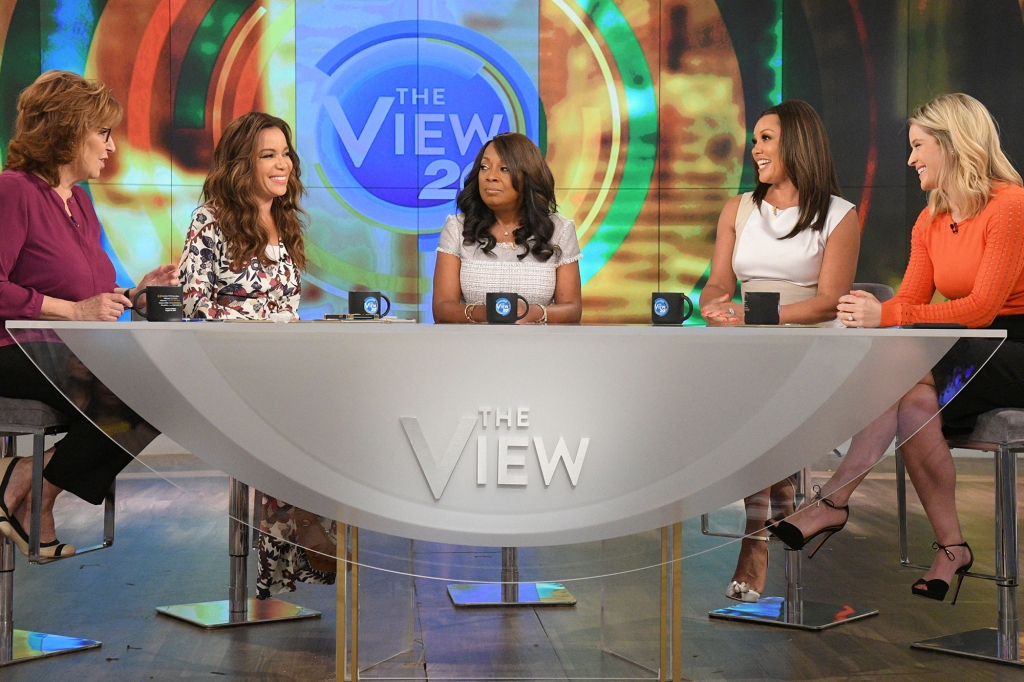Star Jones back as the new host of ‘Divorce Court’
Veteran television personality Star Jones has moved behind the bench to preside over “Divorce Court,” which kicks off its new season Aug. 22 (2-3 p.m. weekdays on WWOR/Ch. 9) from its studio in Atlanta with a virtual audience via Zoom, Skype, etc.
Jones, 60, is the fourth judge in this iteration of the 65-year-old syndicated staple, following Judge Mablean Ephraim, Judge Lynn Toler and Judge Faith Jenkins.
Jones, the former New York City homicide prosecutor, business executive, author — and, of course, an original co-host of “The View” (1997-2006) — spoke to The Post about her new TV job.
Did you have to take any special courses to prepare for “Divorce Court”?
Remember, I was the first black person to have her own court show [“Jones & Jury,” which aired on CNN from 1994-95] so I had the background. I didn’t take any special courses for “Divorce Court”; however, I’ve done a series of arbitration clinics and mediation clinics because I like to keep up with my legal training and the law, what people are talking about, and how to approach different situations.
Were you looking to get back onto television?
I wasn’t. I had been working so hard over the past few years in business and politics and doing political fundraising. I was in my car on the way to the airport to fly to Italy to speak at the Women’s Forum for the Economy & Society … when I got the phone call that this was a possibility. I thought, “If they think I can follow in the footsteps of incredible women like Judge Mablean Ephraim, Judge Lynn Toler and Judge Faith Jenkins, I’ll give it a shot.” I was incredibly honored.
How has it been with your “studio audience” watching virtually?
They really become my at-home jury. I think I feed off the audience — I’m so used to live television, and I really treat this like it was live, even though we’re taping. The audience gives me tremendous energy and, throughout the season, you actually see me refer to them [to the litigants] as “A jury of your peers.” You get to see their immediate reactions and how they’re feeling about the case — whose side they’re believing, etc. — and I really do use them as an extension of the bench. That’s something new that I bring to the table, and I wanted to make it my own.

What goes into preparing for each case?
You know me, I prep like a lunatic, I think to the chagrin of my producers. I prepare like this is Star going into court for real. We usually tape anywhere from seven-to-nine episodes a day, so it’s extremely fast-paced, but I prepare myself for all the cases the day before we shoot. I go through each and very fact pattern, what aspect of the law is going to apply, if there are any resources I want to bring in, like if there’s an addiction problem and I want to refer a litigant to a rehab center. I work with the producers to see if we can offer assistance so that families can stay together … if there’s an expert I want to bring in to give me a little insight into a particular area, I make those suggestions. I treat each case like my actual cases. If there was any one thing I wanted to bring to the show it was my own empathy so that people don’t think they’re just hanging out there with their butts in the wind and that they’re the only ones experiencing this kind of drama and/or trauma.
Your rulings are binding?
Think of it more like an arbitration or mediation. There are really three ways to get onto “Divorce Court”: you can be a married couple having serious issues and you need to make a decision whether or not you want to move toward divorce; you can be engaged for a long period of time and for some reason your partner … won’t set a wedding date … so you really have brought this to “Divorce Court” if you’re planning on making a decision or calling it quits; and if you’ve been in a long-term relationship and may even have children together and it’s never gone to the next level. I need to determine whether or not you stay or go on with your life.
Is there one comment element you’ve seen in your cases?
I found that the one thing every single couple has in common is that one party just wants to be heard. They want somebody to make their partner shut up and listen, at least for five minutes, to whatever is in their hearts or minds. They want to make sure somebody is going to hear their story. And that’s universal. The vast majority of the litigants I saw this season were relationships that came to be during the pandemic — it either drew them closer or made them dependent on each other or drove them apart. You really see it manifest itself coming out of the pandemic — what you were doing during that time you’re not doing anymore, so if you have, as I like to put it, a “strip-club nature,” you’re back in clubs and the partner you got with is not real happy about that. I also saw a lot of people who now use social media as a sword against their partner — which is not something you see on a lot of court shows. I had to learn a whole new language.
Read the full article Here


